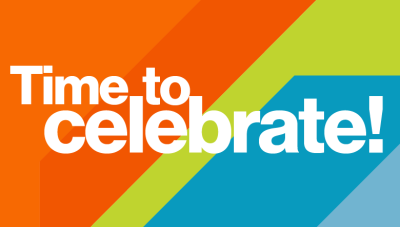RIT/NTID Diversity Spotlight

[ID: Christopher wears a mustard-colored scarf with fringe, a black vest, and a cream and tan short-sleeved shirt. He wears colorful beaded necklaces and has a black button on his vest with “Black” written in white lettering. He sits on a dark blue-green chair against a coral-colored background. The Diversity & Inclusion logo is in the top left corner. In green, yellow, and red lettering: Black Heritage Month. In white lettering: Featured Spotlight. Bracketed in orange is a quote in white lettering: We have been a part of every beautiful and extraordinary moment. They call it Black excellence. When asked what he would like people to know about his culture. At the bottom of the image, text in white reads: Christopher Coles. Director of the first all-Black cast production on Panara Theatre’s stage.]
Christopher Coles ‘04
Interpreter
Christopher is a 2004 RIT/NTID graduate from the ASLIE Department, and is now a certified interpreter, NIC: Master.
What is your nationality/how do you identify?
Black. Big “B.”
What or who has been your biggest cultural influence?
I think youth culture inspires me. I also like to study heroes of the past and how they came to make the decisions they made that changed their lives. I’m very influenced by that.
What is your favorite cultural dish?
My grandmother’s baked mac and cheese, banana pudding, and sweet potato pie…mmhmm.
What would you like people to know about your culture?
To believe what you see. We have been a part of every beautiful and extraordinary moment. They call it “Black excellence.”
From your lens, how can the larger community better support POC, like yourself?
Write a check, show support, stand up for your friends.
Do you have any resources to share with someone who would like to learn more about your culture?
I feel it’s not my role to be a cultural docent, it is important for one to be curious enough to educate themselves about the many accomplishments of black culture just like we study the other things that fascinate us. That’s not my work. It’s yours.
What was it like for you directing Fences, the first full Black cast play on the NTID Panara Theatre stage? Fences had a big impact and was a memorable time in history at NTID. How does that make you feel and what message do you hope individuals got from the experience?
It was an experience I will never forget!!! I worked with such great talented actors who were willing to push themselves beyond their limits. I felt very honored as an alumnus of NTID to be able to contribute to a work that will live on as a legacy and a first of NTID. I’ve spent so much of my time on the Panara stage as a performer on so many memorable plays that audiences have loved over the years, i.e., Emperor Jones, Romeo & Juliet, Othello, Oz, Godspell. My first-time directing Fences, leaving those cultural references and cultural conversations in the essence of this play was an honor I will forever be most proud of.
It is no secret that Blacks often do not get credit where credit is due when it comes to contributions to the arts, music, etc. What advice or thoughts do you have?
Well... I know a little bit about this. *laughs* I think that American culture tends to always look for white agency. Somehow it is hard to fathom that the things we most enjoy were conceived out of black invention and creativity. Most people think that if a black person and a white person worked on a creative project, that in the end the white person owns the creative process, that the white person was “in charge.” That’s just not always the case.
Is there anything else you would like to share about your experience directing or your involvement with Fences?
I was responsible for the “heartbeat” of this play, those cinematic moments you most enjoyed about Fences. The character Gabe was most fun to create. I wanted to show a character that was big and whimsical without making fun of mental illness, that was his personality, other people thought he was strange and peculiar but that was his reality. I also used the ideas of the hand “dapping” (the secret elaborate handshakes) that the characters used toward each other to comment on the secret forms of communication black people have with one another. We have always found ways to communicate to each other, to warn, to show solidarity, unity. I thought that was important to show that. The black brotherhood one toward the other. The black unity. The feeling that our destiny, success is tied to one another.
What is a fun fact about yourself?
I have Twenty tattoos. Twenty. *smiles*




